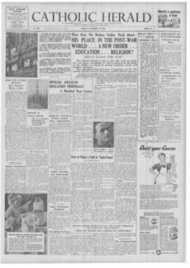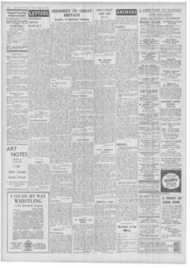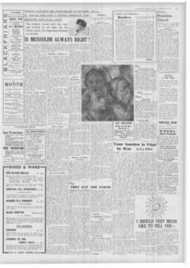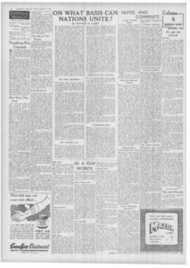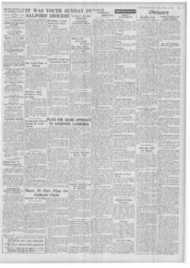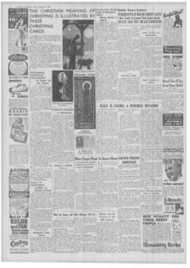Page 1, 30th October 1942
Page 1

Report an error
Noticed an error on this page?If you've noticed an error in this article please click here to report it.
Tags
Share
Related articles
Frank And Brutal
Great, Good & Guilty
Tale Of Two Orphans
Into The Human Jungle
Engaging Reading On Spain
Peter de Polnay's Faith in "Anglo-France'
By ANDREW BOYLE
Best-seller Peter de Polnay, Hungarian-born author of Death and To-morrow has a fiery affection for England which is matched only by a deep-seated realisation of what France has meant to Europe.
When I met hint in London last week, I found him (inappropriately enough) in the uniform of a private in the Pioneer Corps. I thought instinctively, " Isn't this hole much too round for your squareness as a writer?"
Here are the questions I asked him and here are hit answers: Throughout the book you claim that there was still a lot of genuine feeling for England when France collapsed. Among what classes of the population did it most strongly persist?
He answered : " It was at the time of the Battle of Britain that the French people came to like Eugland, for English resistance proved to them that the anti-English propaganda wasn't true and that England could fight without fighting till the lest Frenchman. I heard everywhere the remark, How we misjudged the English ! Real love for this country was the reaction of the French people. They remembered ruefully their Government's refusal of the Churchill offer. Right and left I heard the comment how glad and proud they'd he if they could after
this war unite with England. Somehow they felt that such a union would safeguard them in the future from the kind of treason their country was subjeated to in June, 1940,"
What was the deepest meaning of that feeling, I asked.
He answered: " Throughout my book 1 maintained it, and mind you, I am talking from personal experience, that it was the esprit de l'epicier which was the undoing of France. Especially as fundamentally and historically speaking the grocer was no part of French spirit and culture. I visualise France's future as a return to that great Christian culture which emanated in the Middle ages (which were far from dark) from the Sorbonne, that rallying-point of European solidarity. The resurrection of France so soon after her fall proves the permanence of that great nation." • I presume you are speaking of the common malt?
" I am definitely speaking for the common man."
Are the old political factions wanted back?
" When 1 left France — I am only speaking of the occupied zone—I took the impression with me that French people were mortally sick of politics and political intrigues and that was one more reason for their attachment to this country and to General de Gaulle, whose popularity was chiefly based on the fact that he was • soldier but not as a politician."
What would you say to the suggestion that France and Britain together, inspired by such ideals, might play a leading part in binding Europe together?
" I risked my life umpteen times in Hun-ridden Paris because I firmly believe that the future of Europe could only be based on complete AngloFrench corroboration. There won't be any objection to it from the people of France. They know perfectly well that their salvation depended completely on the heroic resistance of England when all alone in the summer of 1940 she refused to surrender."
blog comments powered by Disqus


